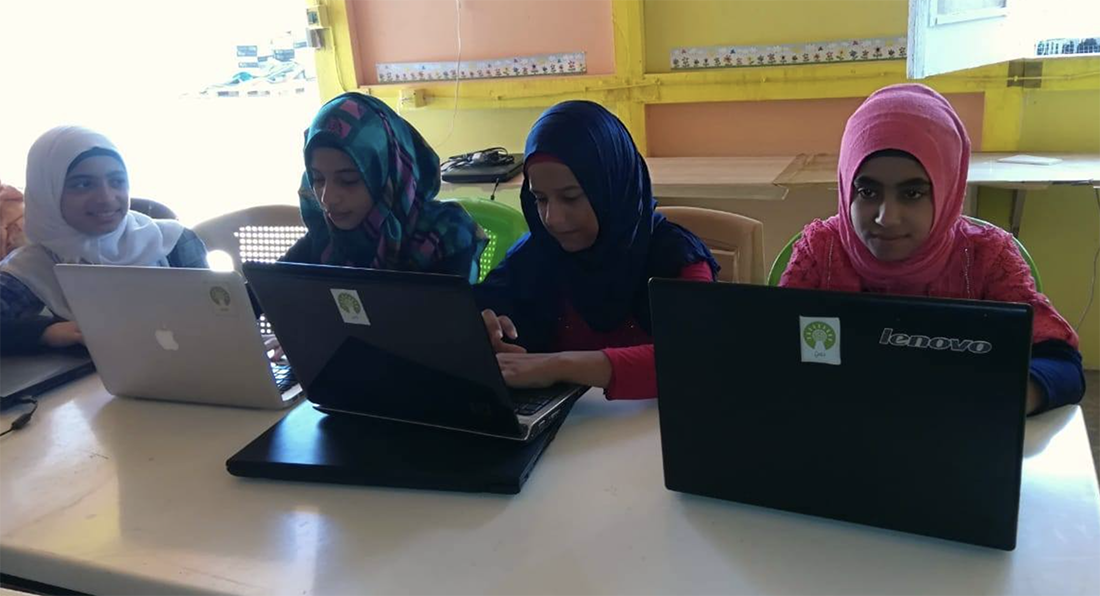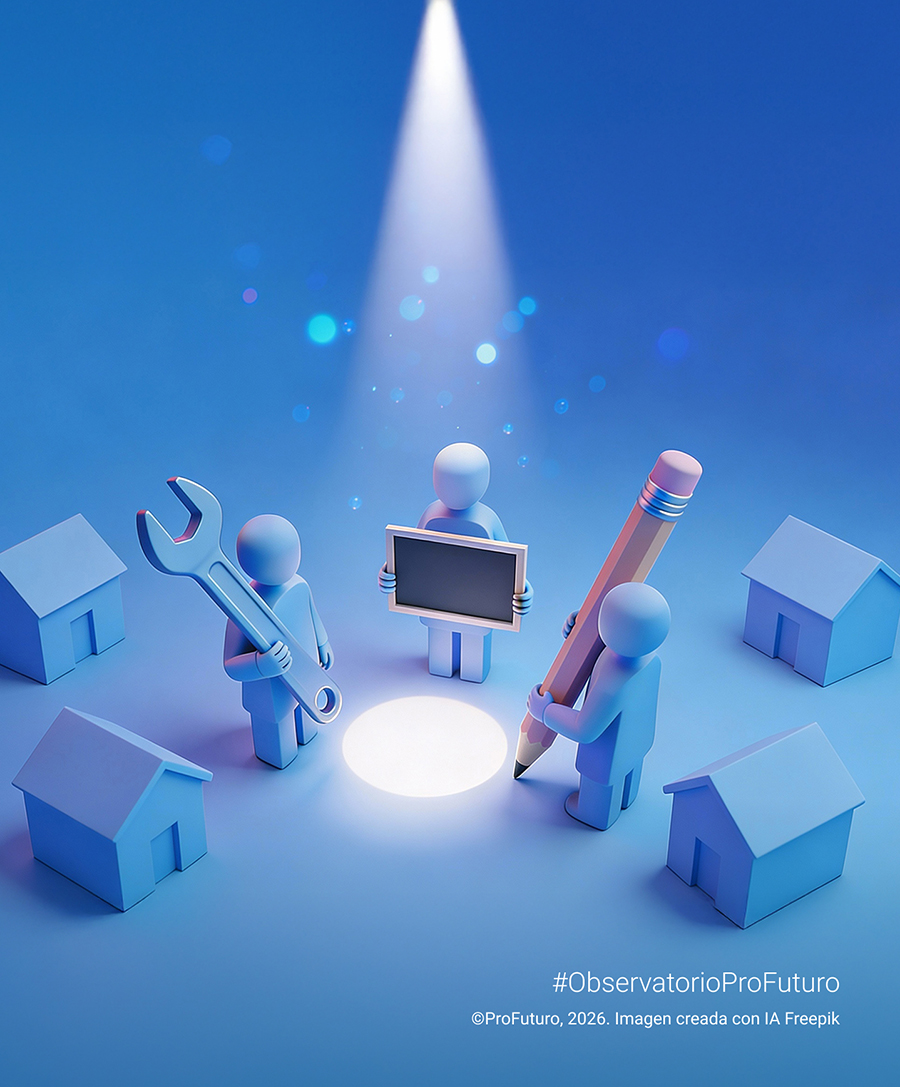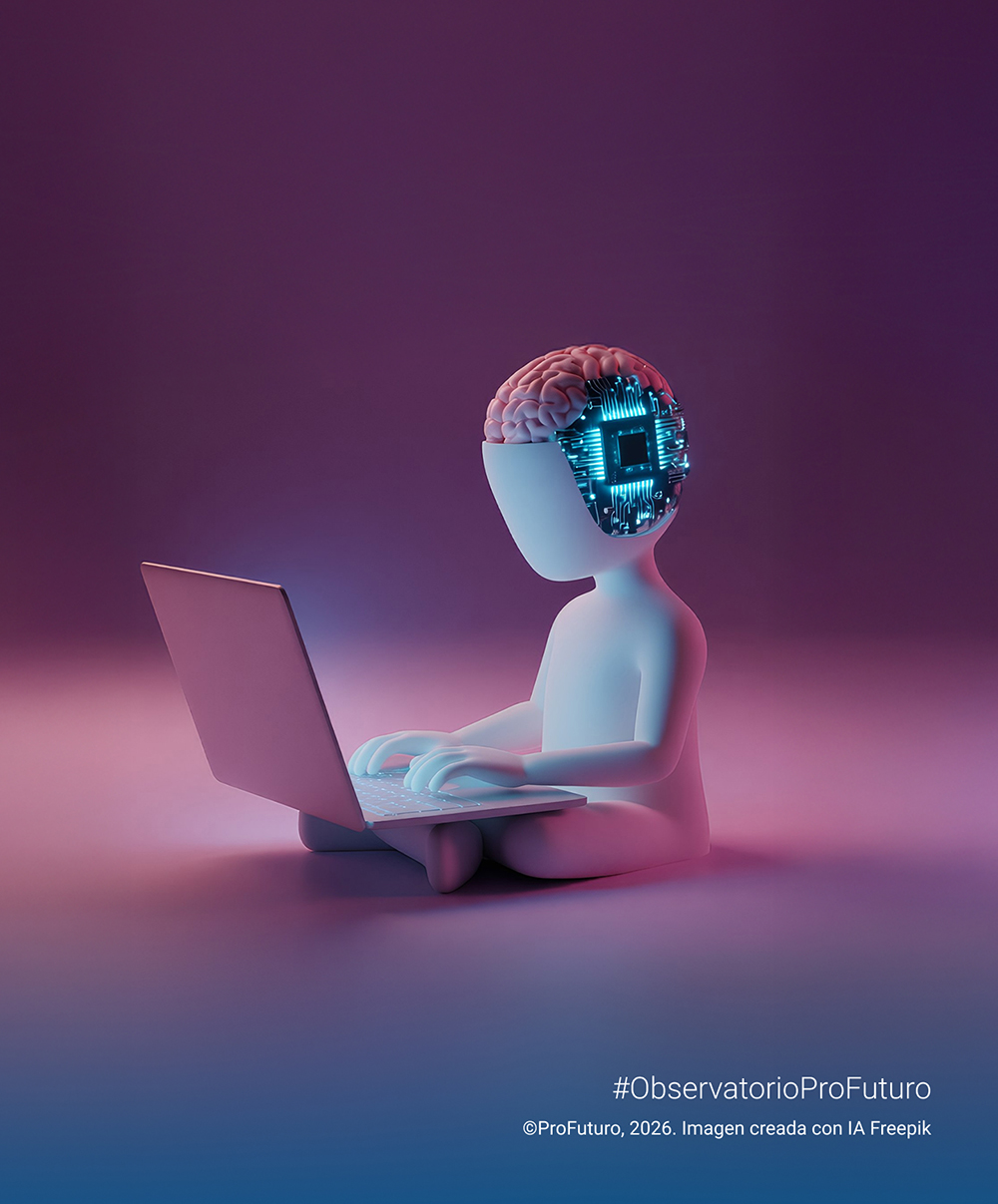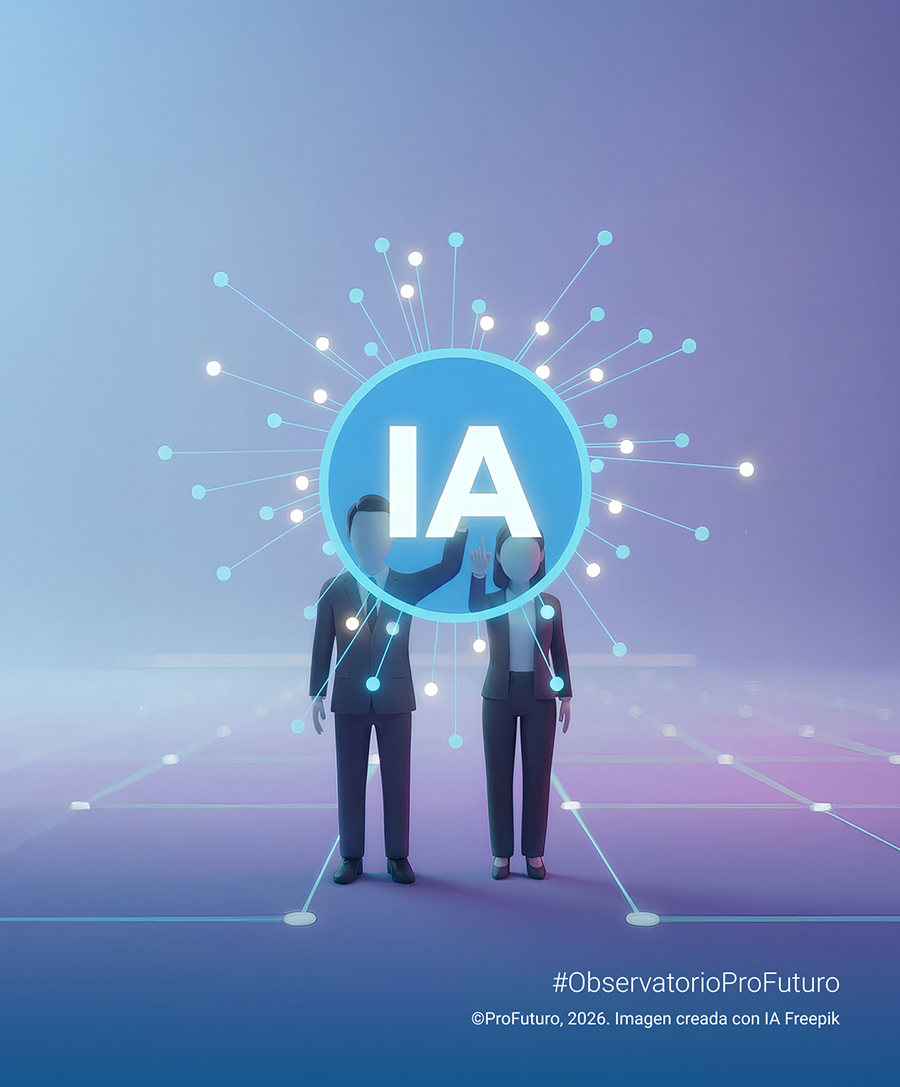If we know how to leverage it, digital education can make a huge difference to the reality of the 34.6 million children and young people who are refugees or displaced from their homes. This collaborative initiative, promoted by a woman who was herself a refugee child, and which brings together companies, institutions, non-profit organisations and individuals, is helping thousands of vulnerable children to get the quality education they deserve.
Rudayna Abdo was a refugee child. When she was eight years old, a bomb destroyed her home during the civil war that ravaged Lebanon for 15 years. So, together with her brother, parents and grandparents, she left her village to take a boat to Cyprus in the middle of the night. She had just become a child refugee. Throughout this drama, her parents had only one thing on their minds: that Rudayna and her brother would be able to continue their education. They themselves had been Palestinian refugee children and knew very well that education is the only thing you can take with you, wherever you go.
Rudayna grew up learning first-hand about the difficulties that children displaced from their homes must face when it comes to learning. So, with the number of refugees growing steadily, one day she felt she had to do something. So she left behind a 20-year career and the security of corporate life to found Thaki in 2015.
Thaki, which means “smart” in Arabic, is based on a very simple process that no one had applied before: they collect used computers, donated by companies that no longer need them, load them with high-quality, interactive and multilingual educational software and content available off-line, and give them directly to refugees so that they can use them for their education: children, but also students and university scholarship holders.
In this way, it promotes digital inclusion and contributes to closing learning gaps among this vulnerable population. Thaki provides innovative solutions in education through technology and acts in a fast and agile manner, applying an entrepreneurial approach. Through these devices, they provide engaging educational content and facilitate digital literacy for these vulnerable children, who otherwise would not have the opportunity to acquire digital competences. Without these competences, this generation of children is condemned to an economic future based on manual labour, where job opportunities are likely to diminish with advances in artificial intelligence and process automation.
So far, and with data from the end of 2021, the initiative has given a new life to more than 4,500 devices, impacting the lives of 15,500 students. It collaborates with 87 organisations that use these devices and their content in schools and refugee centres. According to a study conducted in 2017, each device has a positive impact on more than one child’s life. Overall computer usage metrics show that, on average, one computer serves eight children for one hour per day, which results in 160 hours of e-learning per month. This equates to a total of 1,920 hours of computer learning per year, and 5,760 hours of device lifetime.
A digital toolkit for teachers
Naturally, Thaki provides constant support to the learning process of these children through, among other things, accompaniment and support for teachers. Thus, in 2018, it teamed up with Cerego, a predictive learning platform that maximises learning outcomes using neuroscience, artificial intelligence and cognitive science, to pilot a digital literacy teacher training programme.
In 2020, they also created a digital toolkit for teachers: a bilingual platform with a variety of resources and learning modules that helps teachers to make better use of Thaki content. These resources are meant to inspire them and give them ideas on how to better integrate technology into their classrooms and can be adapted to the needs of the students.
It is based on many years of field work and uses the findings of its studies and its own observations. The Thaki team turned this experience into a Digital Tool Kit, based on the teachers’ needs and their knowledge of the content they put into the devices. The kit includes courses, resources and lessons, in Arabic and English, which can be browsed by subject.
Thaki’s socio-educational intervention model, which has been recognised by various international organisations such as HundrED, not only helps refugee children and young people to have greater opportunities for personal growth through education, but also focuses its work on improving the actions of volunteers and strategic alliances that fight to eradicate this humanitarian problem, adding value to its educational work with children, their teachers and their families.
Because every child deserves to have the best possible education. Because learning can be fun and motivating. Because technology helps us to make progress in learning. Because all children, particularly those who experience traumatic situations, such as refugee children, have the right to a happy and safe childhood. Because helping others helps us to live in peace and makes us better people.






